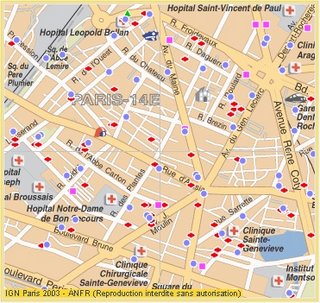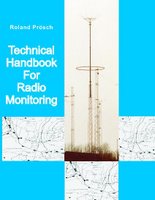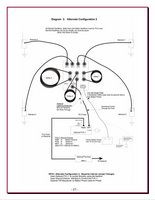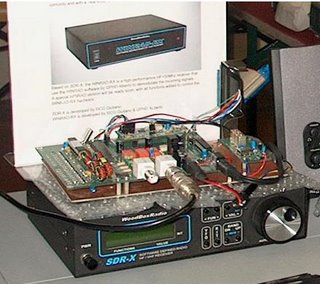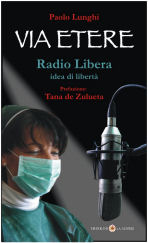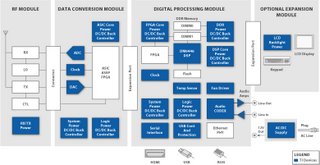Mi considero molto fortunato. Quando ho cominciato a interessarmi attivamente di radioascolto questo fantastico mezzo di comunicazione aveva già mezzo secolo di vita. Ma la radio che ho imparato a conoscere (e ad amare) non era poi tanto diversa da quella che muoveva i suoi primi passi negli anni venti del secolo scorso. Ora, leggendo articoli come quello pubblicato pochi giorni fa sul Media Guardian (richiesta la registrazione gratuita), sul futuro della radio nel Regno Unito, mi ritrovo a riflettere sulla mia fortuna: quella di avere forse qualche pallida chance di vedere qualche indizio di come la radio sarà tra altro mezzo secolo. Il Guardian parla della consultazione appena aperta dall'Authority britannica, l'Ofcom, sulla possibile evoluzione del mercato radiofonico, anche dal punto di vista delle tecnologie. E' la prima volta che si parla concretamente di totale - anche se non imminente - dismissione delle onde medie e dell'FM analogiche. Non solo per l'arrivo di standard digitali vecchi e nuovi, il DAB, il DAB+, il DRM+. Ma anche per la possibile riallocazione delle attuali frequenze analogiche a nuovi servizi digitali, broadcast o meno che siano. Ci vorranno ancora anni, ovviamente, forse decenni, ma immagino sia inevitabile che il digitale cancelli l'analogico, non foss'altro per la pressione esercitata dall'industria del silicio. E quella delle batterie, aggiungerei con un po' di malizia, visto quanto riescono a consumare le radio digitali.
Un punto molto importante della notizia del Guardian è però quello che riguarda la questione, vera o presunta, della qualità (sonora) digitale. Il DAB, scrive il collega Jack Schofield, ha dimostrato di essere un disastro su questo piano, ma l'Ofcom non affronta il tema della qualità audio. Ma, ricorda Schofield, la gente ascolta la radio per la qualità dei programmi. Quando quarant'anni fa strizzavano i loro primi transistor per ascoltare Radio Caroline, i giovani della qualità dell'audio se ne fregavano: per quando gracchiante ed evanescente, quella musica la potevano sentire solo su Caroline, non dalla soporifera BBC. La quale proprio da Caroline imparò moltissimo, come tante altre radio pubbliche in Europa. Certo, messa di fronte alla possibilità di scegliere tra un buon audio e un cattivo audio, gli ascoltatori preferiscono il primo.
Fatevi una grande regalo, se volete. Leggetevi la storia del Guardian e andate a prelevare il lungo documento di consultazione stilato dall'Ofcom. Ci sono molti dati interessanti, come un grafico che evidenzia come l'ascolto digitale della radio, tra DAB, TV digitale e Internet, sia già al 13,6% in Gran Bretagna. O come il pubblico britannico ascoltasse nel 2005 3,2 miliardi di ore di FM, 0,6 di ore di onde medie e 0,45 miliardi di ore in digitale (nel 2006 immagino che le onde medie risulteranno già non pervenute). Trovate il link a questo straordinario documento in fondo al pezzo qui riportato. Direi che si possa sorvolare sul riferimento ai presunti ricevitori DAB/DRM "commercializzati" al momento. Funzionano male, ma questo il giornalista del Guardian non può saperlo. E dopo tutto conta poco: prima o poi funzioneranno. Non so voi, ma a me pare già di avvertire un inquietante ticchettio.
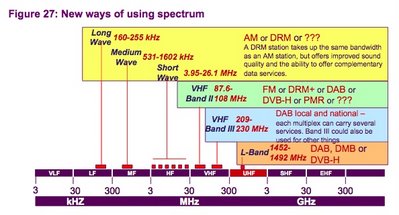
The future of UK radio is now in your hands
The industry regulator Ofcom is throwing the debate on British radio formats over to the public
Jack Schofield
Thursday November 23, 2006
Guardian
If you are concerned about the future of radio in the UK, it's time to get involved. Ofcom has just published a discussion document, The Future of Radio, and is looking for comments by December 14. There are some dramatic changes up for consideration, such as replacing AM radio with Digital Radio Mondiale and replacing FM with DAB. These could render hundreds of millions of radio sets obsolete, and either make radio sound much better or - as with DAB - worse.
Ofcom stresses that nothing has been decided. The purpose of the discussion document is merely to establish the area for debate. It will be followed next year by a full consultation document, which will look at "policy solutions". Ofcom said: "The discussion document looks at what we believe should be considered going forward. Are there additional areas that we should look at?"
Anyone who has been following the DAB (digital audio broadcasting) saga will have no doubt that there are. In particular, Ofcom is simply ignoring the whole issue of sound quality. This is a disaster in view of the BBC's apparently diminishing interest in the topic and the commercial stations' continuing lack of interest. Only Ofcom, the industry's regulator, can set minimum standards to ensure that listeners can receive high-quality sound.
The problem is that people choose their radio stations for content rather than sound quality. Those who joined Jimmy Saville's Under The Bedclothes club on Radio Luxembourg or tuned in to pirate stations such as Radio Caroline listened in spite of the sound quality because they wanted to hear programmes the BBC did not provide. This doesn't mean they would not have preferred better sound. When they have a choice, such as when ripping their own CDs for PC or iPod playback, users clearly do care.
The current argument is about the World DAB Forum's adoption of the AAC+ codec to replace the old MP2 used by DAB in the UK. Ofcom says it has no plans to move to AAC+ - it plans to roll out another DAB multiplex based on obsolete technology. Steve Green, a Hi-Fi World columnist who runs the digitalradiotech.co.uk website, says this is "a ridiculous idea, because it makes the switchover [to AAC+] harder to achieve, and it will prolong the date before we can switch off the old services".
For comparison, Australia adopted AAC+ before the new standard was announced, and Bakom, the Swiss regulator, has already changed tack. After inviting bids for three MP2 radio stations on its new DAB multiplex, Bakom has decided to offer eight stations in the more efficient AAC+ format instead. Ironically, Ofcom's discussion document suggests that Digital Radio Mondiale (DRM) is one option to replace AM radio, as a complement to DAB. DRM already uses AAC, so dual DRM/DAB radios could soon become a convenient replacement for AM/FM radios. T-Mobile is already selling a Morphy Richards DAB/DRM radio in Germany, while Sangean has a triple-format FM-RDS/DAB/DRM model based on a new chipset from Radioscape in Cambridge.
There are several options for the spectrum now occupied by FM radio stations. At present there are five blocks for BBC Radios 1 to 4 and Classic FM, plus five blocks for local radio. Ofcom suggests there could instead be 11 blocks for DAB or DMB (Digital Multimedia Broadcasting, ie including TV), or five blocks of DVB-H (radio or TV for handhelds) "or something not yet thought of".
There's nothing fundamentally wrong with using FM space for DAB; it's more efficient. The problem today comes from adding more stations and reducing the broadcast quality of existing stations - even transmitting stereo music stations in mono - to fit them all in. Adding TV, which requires far more bandwidth, could make radio sound even worse.
Green says: "It is totally unacceptable to even consider switching off FM unless there is regulation in place to ensure that listeners get at the very least the same audio quality level on digital radio as they receive on FM, and preferably it should be significantly higher. This is the 21st century, after all. If they can't beat 1960s FM there is something very wrong." The way Ofcom is going, Green says he'd put a large bet on the UK getting digital radio with the worst audio quality in Europe. We already have the worst average DAB quality in the world.
www.ofcom.org.uk/consult/condocs/radio_future
Un punto molto importante della notizia del Guardian è però quello che riguarda la questione, vera o presunta, della qualità (sonora) digitale. Il DAB, scrive il collega Jack Schofield, ha dimostrato di essere un disastro su questo piano, ma l'Ofcom non affronta il tema della qualità audio. Ma, ricorda Schofield, la gente ascolta la radio per la qualità dei programmi. Quando quarant'anni fa strizzavano i loro primi transistor per ascoltare Radio Caroline, i giovani della qualità dell'audio se ne fregavano: per quando gracchiante ed evanescente, quella musica la potevano sentire solo su Caroline, non dalla soporifera BBC. La quale proprio da Caroline imparò moltissimo, come tante altre radio pubbliche in Europa. Certo, messa di fronte alla possibilità di scegliere tra un buon audio e un cattivo audio, gli ascoltatori preferiscono il primo.
Fatevi una grande regalo, se volete. Leggetevi la storia del Guardian e andate a prelevare il lungo documento di consultazione stilato dall'Ofcom. Ci sono molti dati interessanti, come un grafico che evidenzia come l'ascolto digitale della radio, tra DAB, TV digitale e Internet, sia già al 13,6% in Gran Bretagna. O come il pubblico britannico ascoltasse nel 2005 3,2 miliardi di ore di FM, 0,6 di ore di onde medie e 0,45 miliardi di ore in digitale (nel 2006 immagino che le onde medie risulteranno già non pervenute). Trovate il link a questo straordinario documento in fondo al pezzo qui riportato. Direi che si possa sorvolare sul riferimento ai presunti ricevitori DAB/DRM "commercializzati" al momento. Funzionano male, ma questo il giornalista del Guardian non può saperlo. E dopo tutto conta poco: prima o poi funzioneranno. Non so voi, ma a me pare già di avvertire un inquietante ticchettio.

The future of UK radio is now in your hands
The industry regulator Ofcom is throwing the debate on British radio formats over to the public
Jack Schofield
Thursday November 23, 2006
Guardian
If you are concerned about the future of radio in the UK, it's time to get involved. Ofcom has just published a discussion document, The Future of Radio, and is looking for comments by December 14. There are some dramatic changes up for consideration, such as replacing AM radio with Digital Radio Mondiale and replacing FM with DAB. These could render hundreds of millions of radio sets obsolete, and either make radio sound much better or - as with DAB - worse.
Ofcom stresses that nothing has been decided. The purpose of the discussion document is merely to establish the area for debate. It will be followed next year by a full consultation document, which will look at "policy solutions". Ofcom said: "The discussion document looks at what we believe should be considered going forward. Are there additional areas that we should look at?"
Anyone who has been following the DAB (digital audio broadcasting) saga will have no doubt that there are. In particular, Ofcom is simply ignoring the whole issue of sound quality. This is a disaster in view of the BBC's apparently diminishing interest in the topic and the commercial stations' continuing lack of interest. Only Ofcom, the industry's regulator, can set minimum standards to ensure that listeners can receive high-quality sound.
The problem is that people choose their radio stations for content rather than sound quality. Those who joined Jimmy Saville's Under The Bedclothes club on Radio Luxembourg or tuned in to pirate stations such as Radio Caroline listened in spite of the sound quality because they wanted to hear programmes the BBC did not provide. This doesn't mean they would not have preferred better sound. When they have a choice, such as when ripping their own CDs for PC or iPod playback, users clearly do care.
The current argument is about the World DAB Forum's adoption of the AAC+ codec to replace the old MP2 used by DAB in the UK. Ofcom says it has no plans to move to AAC+ - it plans to roll out another DAB multiplex based on obsolete technology. Steve Green, a Hi-Fi World columnist who runs the digitalradiotech.co.uk website, says this is "a ridiculous idea, because it makes the switchover [to AAC+] harder to achieve, and it will prolong the date before we can switch off the old services".
For comparison, Australia adopted AAC+ before the new standard was announced, and Bakom, the Swiss regulator, has already changed tack. After inviting bids for three MP2 radio stations on its new DAB multiplex, Bakom has decided to offer eight stations in the more efficient AAC+ format instead. Ironically, Ofcom's discussion document suggests that Digital Radio Mondiale (DRM) is one option to replace AM radio, as a complement to DAB. DRM already uses AAC, so dual DRM/DAB radios could soon become a convenient replacement for AM/FM radios. T-Mobile is already selling a Morphy Richards DAB/DRM radio in Germany, while Sangean has a triple-format FM-RDS/DAB/DRM model based on a new chipset from Radioscape in Cambridge.
There are several options for the spectrum now occupied by FM radio stations. At present there are five blocks for BBC Radios 1 to 4 and Classic FM, plus five blocks for local radio. Ofcom suggests there could instead be 11 blocks for DAB or DMB (Digital Multimedia Broadcasting, ie including TV), or five blocks of DVB-H (radio or TV for handhelds) "or something not yet thought of".
There's nothing fundamentally wrong with using FM space for DAB; it's more efficient. The problem today comes from adding more stations and reducing the broadcast quality of existing stations - even transmitting stereo music stations in mono - to fit them all in. Adding TV, which requires far more bandwidth, could make radio sound even worse.
Green says: "It is totally unacceptable to even consider switching off FM unless there is regulation in place to ensure that listeners get at the very least the same audio quality level on digital radio as they receive on FM, and preferably it should be significantly higher. This is the 21st century, after all. If they can't beat 1960s FM there is something very wrong." The way Ofcom is going, Green says he'd put a large bet on the UK getting digital radio with the worst audio quality in Europe. We already have the worst average DAB quality in the world.
www.ofcom.org.uk/consult/condocs/radio_future
Tags: radioascolto, radiofonia, radio, dxing.




